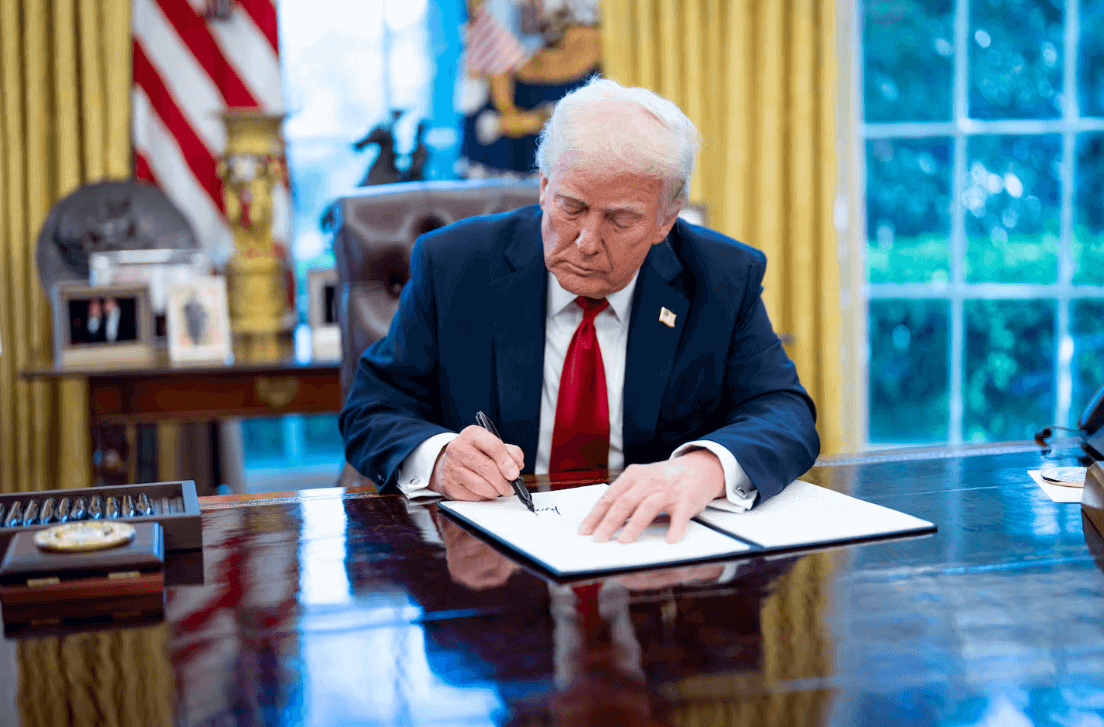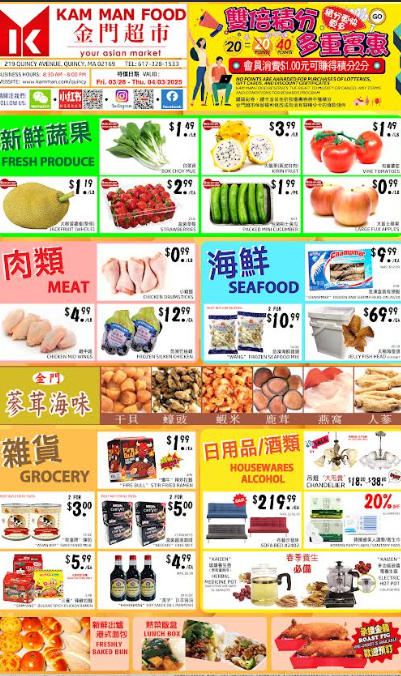特朗普的惩罚性关税震惊了美国汽车制造商盟友

【中美创新时报2025 年 3 月 28 日编译讯】(记者温友平编译)墨西哥、日本、韩国和加拿大占美国汽车进口量的约 75%。除了直接出口外,日本和韩国汽车制造商还在墨西哥和加拿大生产许多最终进入美国市场的汽车,因此它们特别容易受到关税的影响。《纽约时报》记者里弗·阿基拉·戴维斯埃米利亚诺·罗德里格斯·梅加和伊恩·奥斯汀对此作了下述报道。
墨西哥向边境部署了数千名国民警卫队士兵,以阻止移民进入美国。韩国表示将投资 210 亿美元扩大美国制造业。日本官员来到华盛顿,提出向美国投资 1 万亿美元并购买更多美国天然气。
但这一切都不足以阻止这些国家最大的关税担忧之一于周三成为现实,美国总统唐纳德·特朗普宣布,从 4 月 3 日起,进口到美国的汽车和汽车零部件将面临 25% 的关税。
墨西哥、日本、韩国和加拿大占美国汽车进口量的约 75%。除了直接出口外,日本和韩国汽车制造商还在墨西哥和加拿大生产许多最终进入美国市场的汽车,因此它们特别容易受到关税的影响。
关税还将冲击欧洲,特别是德国,德国三大汽车制造商占欧盟对美国汽车出口的近四分之三。
短期内,特朗普的新关税预计将扰乱外国汽车制造商的生产业务并拖累他们的盈利。
周四亚洲交易时段,日本丰田汽车、本田汽车和日产汽车的股价均下跌约 2%。韩国现代汽车和起亚以及马自达汽车和斯巴鲁这两家规模较小的日本制造商尤其依赖美国市场的销售,这两家公司的股价下跌了 3% 至 6%。
欧洲最大的汽车制造商德国大众汽车的股价下跌了 1.5%。包括梅赛德斯-奔驰和宝马在内的其他德国汽车制造商的股价在欧洲交易中下跌了 2% 至 3%。
然而,如果关税延长——甚至像特朗普所说的那样,是永久的——那么它可能会对美国的北美邻国以及欧洲和亚洲主要盟友的经济产生深远而破坏性的影响。
对于日本和韩国来说,汽车是出口到美国的最大产品。墨西哥除了生产汽车外,每年还生产价值数百亿美元的汽车零部件,出口到其北方邻国。在加拿大,汽车制造和汽车零部件是该国按价值计算的第二大出口产品。去年,欧洲汽车制造商跨大西洋的出货量超过 400 亿美元。
对于受特朗普关税影响严重的国家,经济学家警告称,新的汽车税可能会严重抑制今年的经济增长。从长远来看,关税可能会促使那些工业基础严重依赖汽车制造商及其供应链的国家削减国内生产。
近年来,日本、韩国汽车制造商以及欧洲品牌(占美国汽车进口量的 18%)越来越依赖美国市场。这在一定程度上是因为其本国需求停滞不前,但也因为他们在全球最大汽车市场中国面临着来自本土竞争对手的激烈竞争。
这种动态有助于解释为何一些国家激烈争取关税豁免。
日本官员和游说者在华盛顿为自己辩护,强调日本在美国有大量投资,并警告称关税将提高美国消费者的价格。上个月,日本首相石破茂在与特朗普的会晤中表示,日本将通过购买更多美国液化天然气等产品,将对美国的投资增加到约 1 万亿美元。
在墨西哥,为回应特朗普对非法移民的持续谴责,墨西哥向美墨边境部署了约1万名国民警卫队士兵,并向美国移交了数十名贩毒集团高层人员,并努力打击芬太尼的生产。
韩国现代汽车本周早些时候表示,将投资 210 亿美元扩大美国制造业。特朗普称赞这一声明是他的政策正在努力创造更多美国就业机会的标志,此后,许多业内人士都在关注现代汽车的承诺是否会影响总统的关税考量。
显然并非如此。
总统贸易和制造业高级顾问彼得·纳瓦罗周三对记者说,日本、韩国和德国是主要原因。他说,这些国家削弱了美国公司在海外销售汽车的能力。
去年,日本汽车品牌向美国出口了 137 万辆汽车,而韩国汽车制造商出口了 143 万辆。此外,研究公司 JATO 的数据显示,去年美国销售的 82.1 万辆轻型汽车是在欧盟组装的。相反,美国汽车制造商在日本、韩国和德国的业务很少——这一现实自特朗普上任以来就一直困扰着他。
尽管如此,那些愿意与特朗普政府谈判的外国官员还是对周三的声明感到震惊。
日本首相石破茂在议会会议上表示:“日本在美国进行了大量投资,创造了大量就业机会。我们不会对所有国家都这样做。”他表示,他“强烈要求”不要对日本征收 25% 的汽车进口关税。
虽然自 11 月特朗普当选以来,加拿大官员一直与美国同行保持密切联系,但加拿大事先并未收到特朗普宣布参选的警告或细节。加拿大总理马克·卡尼在竞选活动中表示:“这是一次直接攻击。”
在墨西哥,该国全国汽车零部件工业协会执行董事弗朗西斯科·冈萨雷斯表示,他对关税公告感到“震惊”。本周早些时候,即将上任的美国驻墨西哥大使罗纳德·约翰逊告诉特朗普,墨西哥政府加大支持力度令他“备受鼓舞”。
欧盟委员会主席乌尔苏拉·冯德莱恩表示,欧盟将继续尝试与特朗普政府进行谈判,“同时维护其经济利益”。
代表德国汽车制造商的组织表示,这些关税将是“对自由和基于规则的贸易发出的可怕信号”,并将“对包括北美在内的消费者产生负面影响”。
目前,公司和官员只能考虑他们的选择并制定新的计划。
在加拿大,卡尼承诺,如果特朗普真的坚持征收关税,加拿大将为工人和汽车相关行业提供帮助,包括提供 20 亿加元(14 亿美元)的资金重塑该行业,为未来没有美国的汽车业做准备。
在特朗普威胁的关税生效之前,亚洲多家汽车公司一直在努力加快对美国的出货量。这些汽车制造商也开始准备在美国境内的制造厂尽可能提高产量。
然而,汽车情报提供商标普全球移动出行公司副总裁迈克尔·罗宾内特表示,除了美国三大汽车品牌——通用汽车、福特汽车和 Stellantis 之外,很少有汽车制造商在美国拥有过剩产能。这意味着,如果他们想生产更多汽车,就必须建造新工厂,而这将需要数年时间才能完成。
罗宾内特表示,就目前而言,关税将意味着汽车制造商陷入混乱,美国消费者将面临价格上涨。
“政府中有些人认为汽车制造商会自行吸收增加的成本,”罗宾内特说。然而,汽车制造商的利润不足以承受这一负担,他说。“汽车价格肯定会上涨,”他说,“只是涨价方式、时间和幅度的问题。”
本文最初刊登于《纽约时报》。
题图:特朗普总统。道格·米尔斯/纽约时报
附原英文报道:
Trump’s punishing tariffs stun America’s automaker allies
By River Akira Davis, Emiliano Rodríguez Mega and Ian Austen New York Times,Updated March 28, 2025, 12:40 a.m.
President Trump.DOUG MILLS/NYT
TOKYO — Mexico deployed thousands of National Guard troops to the border to deter migrants from reaching the United States. South Korea said it would invest $21 billion in expanding U.S. manufacturing. Japanese officials descended on Washington, offering to invest $1 trillion in the United States and buy more American natural gas.
None of that was enough to prevent one of those countries’ biggest tariff concerns from becoming a reality Wednesday, when President Donald Trump declared that automobiles and car parts imported to the United States would face a 25% tariff starting April 3.
Mexico, Japan and South Korea, along with Canada, account for about 75% of U.S. vehicle imports. Beyond direct exports, Japanese and South Korean automakers also manufacture many of the vehicles in Mexico and Canada that ultimately land in the American market, leaving them particularly exposed to the tariffs.
The tariffs will also hit Europe, particularly Germany, whose three largest carmakers make up nearly three-quarters of the European Union’s automotive exports to the United States.
In the near term, Trump’s new tariffs are expected to scramble foreign automakers’ production operations and drag on their earnings.
Shares in Japan’s Toyota Motor, Honda Motor and Nissan Motor all fell about 2% in Asia trading Thursday. The stock prices of South Korea’s Hyundai Motor and Kia, as well as Mazda Motor and Subaru — two smaller Japanese manufacturers particularly dependent on U.S. sales — fell between 3% and 6%.
Shares in Germany’s Volkswagen, Europe’s largest automaker, fell 1.5%. Other German carmakers including Mercedes-Benz and BMW dropped 2% to 3% in European trading.
However, if the tariffs are prolonged — or even permanent, as Trump has said they will be — they are likely to have far-reaching and damaging effects on the economies of the United States’ North American neighbors and key allies in Europe and Asia.
For Japan and South Korea, automobiles are the top export to the United States. Mexico, in addition to cars, produces tens of billions of dollars worth of automobile parts each year that are exported to its northern neighbor. In Canada, auto manufacturing and auto parts are the country’s second-biggest export by value. Last year, European automakers’ shipments across the Atlantic were worth more than $40 billion.
For countries heavily affected by Trump’s tariffs, economists warned that the new taxes on cars could significantly curb economic growth this year. In the longer term, the tariffs could prompt a carving out of domestic production in countries where the industrial base is heavily reliant on automakers and their supply chains.
In recent years, Japanese and South Korean automakers, as well as European brands — which account for 18% of U.S. car imports — have become increasingly reliant on the American market. That is in part because of stagnant demand in their home countries, but also because they are facing heightened competition from local competitors in the world’s biggest car market, China.
This dynamic helps to explain why some of the countries fought intensely to try to secure exemptions from the tariffs.
Japanese officials and lobbyists have argued their case in Washington, highlighting substantial Japanese investment in the United States and warning that tariffs would raise prices for U.S. consumers. In a meeting with Trump last month, Prime Minister Shigeru Ishiba of Japan said his country would aim to increase investment in the United States to about $1 trillion by buying more products like American liquefied natural gas.
In Mexico, officials deployed about 10,000 national guard troops to the U.S.-Mexico border in response to Trump’s persistent condemnation of illegal migration to the United States. They also handed over to the United States dozens of top cartel operatives and worked to crack down on fentanyl production.
Hyundai in South Korea said earlier this week it would invest $21 billion in expanding U.S. manufacturing. After Trump praised the announcement as a sign that his policies were working to create more American jobs, many in the industry were looking to see if Hyundai’s pledge would sway the president’s tariff calculus.
It apparently didn’t.
Peter Navarro, the senior counselor to the president on trade and manufacturing, singled out Japan, South Korea and Germany, when speaking to reporters Wednesday. Those countries, he said, had undermined the ability of U.S. companies to sell their cars overseas.
Japanese brands shipped 1.37 million vehicles to the United States last year, while South Korean automakers exported 1.43 million. In addition, 821,000 light vehicles sold in the United States last year were assembled in the European Union, according to JATO, a research firm. Conversely, U.S. automakers have a minimal presence in Japan, South Korea and Germany — a reality that has vexed Trump since his first term as president.
Still, foreign officials, who felt they were willing to negotiate with the Trump administration, were stunned by the Wednesday announcement.
“Japan has made significant investments in America and created a significant number of jobs. We do not do this for all countries,” Ishiba, Japan’s prime minister, said during a meeting at parliament. He said he was “strongly requesting” that the 25% tariff on automobile imports not be applied to Japan.
While Canadian officials have been in close touch with their U.S. counterparts since Trump’s election in November, Canada was given no advance warning or details of the president’s announcement. “This is a direct attack,” Mark Carney, the Canadian prime minister, said at a campaign stop.
In Mexico, Francisco González, the executive director of the country’s National Auto Parts Industry Association, said that he was “shocked” by the tariff announcement. Earlier this week, the incoming U.S. ambassador to Mexico, Ronald Johnson, had told Trump he was “encouraged” by the increase in support he had seen from the Mexican government.
Ursula von der Leyen, the president of the European Commission, said that the EU would continue to try to negotiate with the Trump administration “while safeguarding its economic interests.”
The organization that represents German automakers said the tariffs would be “a dire signal for free and rule-based trade” that will have “negative consequences especially for consumers, including in North America.”
For now, companies and officials are left to consider their options and come up with new plans.
In Canada, Carney had promised help for workers and auto-related industries if Trump did, in fact, go ahead with tariffs, including a 2 billion Canadian dollar ($1.4 billion) fund to reshape the sector for a future without the United States.
A number of car companies in Asia have been trying to accelerate shipments to the United States before the tariffs Trump was threatening would take effect. Those automakers are also beginning preparations to ramp up production to the extent they can at the manufacturing plants they operate inside the United States.
However, Michael Robinet, a vice president at the automotive intelligence provider S&P Global Mobility, said that few automakers outside of America’s big three brands — General Motors, Ford Motor and Stellantis — have excess production capacity in the United States. That means that if they want to make more vehicles, they would have to build new factories, which would take years to complete.
For now, Robinet said, the tariffs would mean chaos for automakers and higher prices for consumers in the United States.
“There’s a belief from some in the government that automakers will simply absorb the added costs,” Robinet said. However, automakers’ margins are ill-equipped to handle that burden, he said. “Vehicle prices will go up without doubt,” he said, “it’s just a matter of how and when and how much.”
This article originally appeared in The New York Times.

